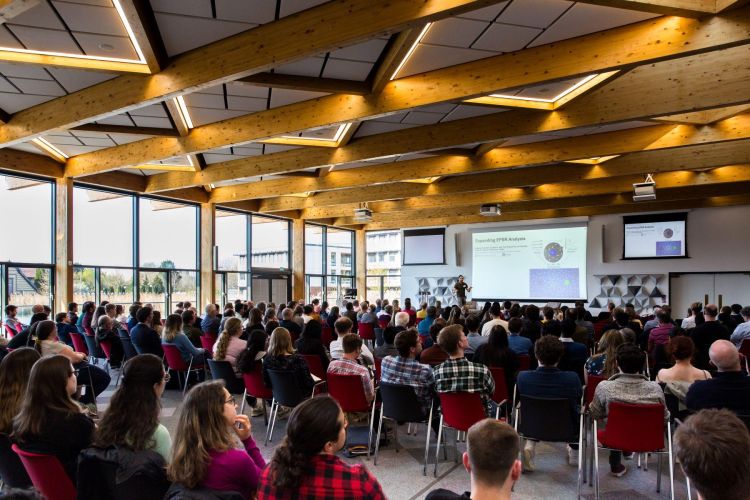Leeds researcher wins coveted 2023 Don McKenzie Paul Thesis Prize

The prestigious Don McKenzie Paul Thesis Prize 2023 has been awarded to the University of Leeds’ Dr Harrison Laurent for his ground-breaking research on aqueous solutions.
Dr Laurent’s PhD thesis, “The Biological Role of Water in Extreme Conditions”, studied how extremes of pressure and salinity affect the aqueous environment both within and surrounding extremophile organisms.
His work has important implications for terrestrial extremophiles, demonstrating how pressure-adapted organisms cancel out the effect of pressure within their tissues through organic osmolytes. It also allows for speculation about the limits of life beyond our planet, demonstrating that crucial biomolecular hydrogen bonding can persist in extreme Martian mimetic conditions, and even be enhanced by the same organic osmolytes used by terrestrial extremophiles.
Dr Laurent has already been recognised for his work with water@leeds’ Supporting Postgraduate Research to Inspire the Next Generation (SPRING) award in June 2021, which culminated in the commissioning of an animated video to explain his research to a wider audience at Leeds Light Night in 2022.
Speaking about his most recent accolade, Dr Laurent said: “Being awarded the inaugural Don Paul McKenzie thesis prize is a wonderful way to celebrate my time doing my PhD at the University of Leeds and the ISIS Neutron and Muon Source.
“I am incredibly lucky and overwhelmingly grateful to have worked collaboratively with researchers across a wide range of disciplines between the two institutions to develop novel insights into the fundamental molecular interactions that govern life in extreme environments.”

Credit: STFC
Over the last five years, he has been a speaker at international conferences in the UK, Europe and the US, discussing extreme aqueous environments, and produced five first-author publications in peer reviewed journals. In the coming months, Dr Laurent is taking his research in a slightly different direction, using neutron scattering and computational modelling to investigate the self-assembly and hydration of model folded “miniproteins”, specifically how the aqueous environment and other solute molecules interact with a model protein at a molecular level.
He also continues to serve as a European Research Council-funded research fellow working with Professor Lorna Dougan’s research group at the University, using folded proteins to form hydrogels for cutting-edge applications in biomedicine.
The Don McKenzie Paul Thesis Prize recognises PhD theses in which the use of neutrons plays a key role in unpicking a scientific challenge or describing notable developments of neutron instrumentation or techniques.
It takes its name from Don McKenzie Paul, a condensed matter scientist and professor at the University of Warwick who was a pioneer in neutron scattering. The award is coordinated by the Neutron Scattering Group, comprised of members of the Institute of Physics and Royal Society of Chemistry.
Further information
-
“Dr Harrison Laurent wins the 2023 Don McKenzie Paul Thesis Prize”, ISIS Neutron and Muon Source, April 2023.
-
“The Biological Role of Water in Extreme Conditions”, Harrison Samuel Tarrent Laurent, University of Leeds, 2021.




